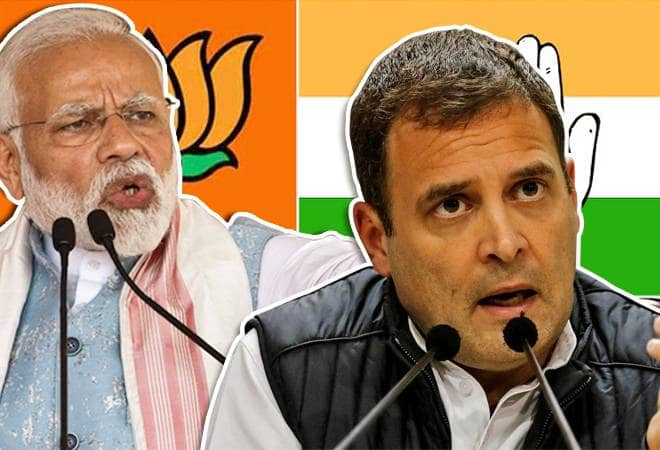With an upswing of about 4 per cent in vote share, as reported in recent polls/surveys, can the Congress tide over its lowest ebb (44 MPs in the 16th Lok Sabha) and dethrone the incumbent? Perhaps a deep dive into two latest surveys — CSDS-Lokniti and Times Now-VMR — will serve the purpose.
The first votes in the 2019 Lok Sabha elections will be polled on April 11. Both the principal parties — the BJP and the Congress — are entering into the general elections with a likely 4 percentage point increase in their vote shares. However, as per CSDS-Lokniti pre poll survey, this increase in the BJP’s vote share appears to be largely at the cost of the non-United Progressive Alliance (UPA) parties. Thereby, this increase vote share is unlikely to fetch more seats for the BJP.

Does that mean the GOP, like they usurped the reins in 2004 general elections from the popular Atal Bihari Vajpayee Government, will form the union government with its alliance partners in 2019? According to Sanjay Kumar, director CSDS, 2004 and 2019 general elections cannot be compared as the voter base for the Congress party between the two elections are remarkably different.
“2004 and 2019 not comparable. The support base are different. Before 2004 Elections Cong had 28.5% votes, before 2019 Cong has 19.6% votes,” Kumar tweeted.
The Congress party sure has its task cut out. In the BJP won 207 parliamentary constituencies with a margin well over one lakh votes (see box 1). The Congress was routed. The party endured a 9.03 per cent negative swing, lost 162 MPs – from 206 MPs in the 15th Lok Sabha to just 44 MPs in the 16th Lok Sabha – and its vote share was reduced to a measly 19.6 per cent.
Will a 4 percentage point increase in vote share suffice then? According to Kumar even if the party pulls off about 7 per cent increase in its vote share the Congress is unlikely to win over 100 seats in the 2019 general elections.

There is no “Modi wave” — is perhaps the only silver lining for the opposition parties. Most surveys predict advantage BJP-led National Democratic Alliance, but add a rider that the alliance could just fall short of a majority.
Though Times Now – VMR latest survey points at a close contest between the NDA and the UPA, predicts Congress-led UPA will finish a distant second.
According to the survey NDA will get 2.6 per cent more votes than in 2014 but the alliance will lose 57 seats and will be reduced to slender majority with 279 MPs in the 17th Lok Sabha. The UPA with 30.7 per cent vote share, as per the poll, is likely to add 89 MPs to its 2014’s tally and take 149 seats (see Box 2).
The results for the 2019 Lok Sabha elections will be declared on May 23, the jury is out till then!





